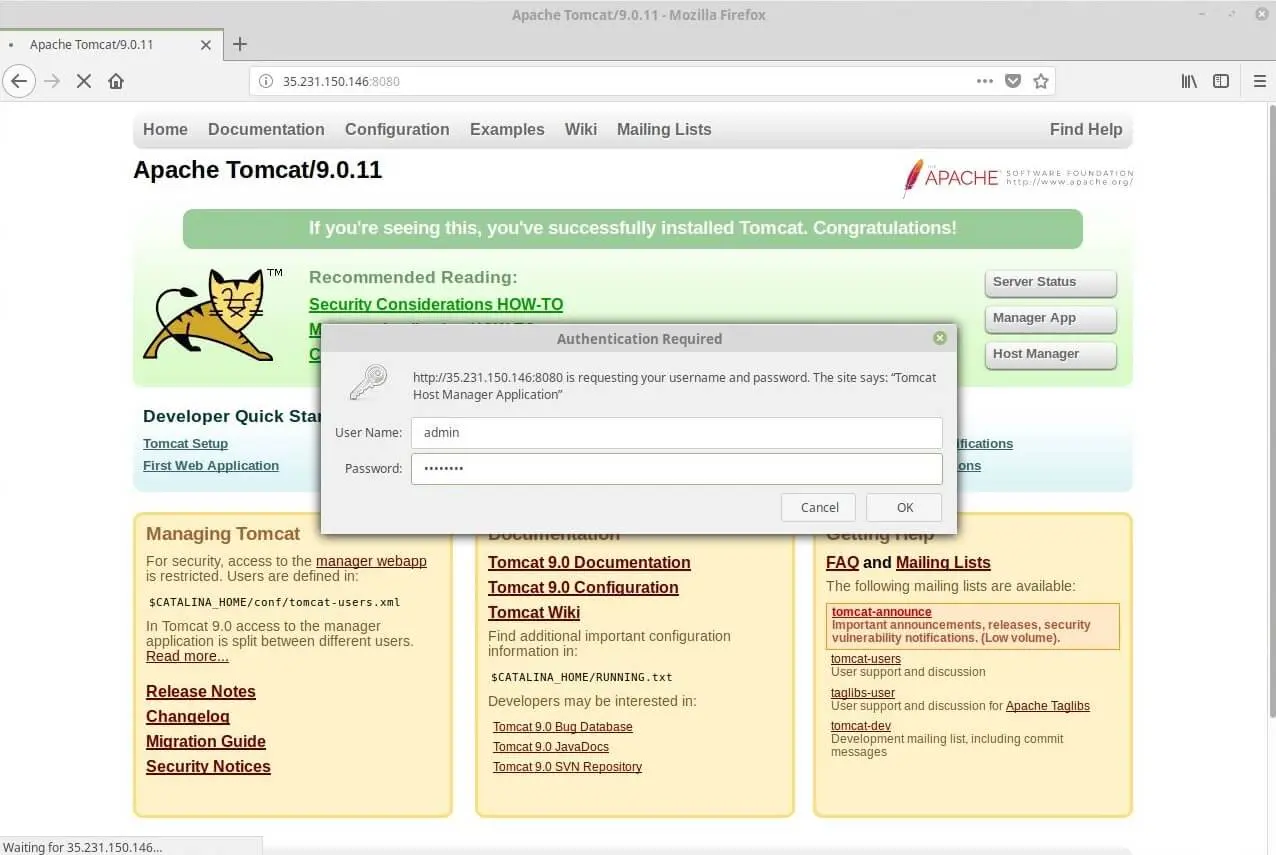
Click Start > Administrative Tools > Services.
#PASSWORD TOMCAT MANAGER UPDATE#
The following files have been uploaded in the file testcase. Edit the CCMS Web Path/apache-tomcat-version/conf/tomcat-users.xml file and update the password. With this when hitting you will be successfully able to access the page with username as jboss and password as password.

Success The username/password tomcat/tomcat will get us access to the server. The $TOMCAT_HOME/conf/tomcat-users.xml should have the following:- This module is, obviously, for logging into Tomcat.Add the SHA1 algorithm in $TOMCAT_HOME/conf/server.xml as follows:.Encrypt using $TOMCAT_HOME/bin/digest.sh as follows bin]$.The following steps were taken to encrypt the password:. There is a file named digest.sh within the bin directory as follows, that can be used to mask passwords:- You can resolve the issue by ssh tunneling and forwarding the port the tomcat is running on (8080) by ssh usertomcat-machine -L 8080:localhost:8080 and then accessing the manager app not on but The solution that worked for me is edit context.
#PASSWORD TOMCAT MANAGER HOW TO#
How to mask Clear text password in Tomcat configuration file like tomcat-users.xml ?.How to Encrypt these passwords specified tomcat-user.xml in EWS 2.0.1?

For example, to add the manager-gui role to a user named tomcat with a password of s3cret, add the following to the config file listed above. For Firefox you can go to Tools -> Clear Recent History. There are users specified with their passwords in $TOMCAT_HOME/conf/tomcat-users.xml, these users are part of authentication for accessing the web applications. That file must contain the credentials to let you use this webapp. 2 Answers Sorted by: 1 This has to do with the browser and its policy to preserve active logins.

Red Hat JBoss Enterprise WebServer (EWS).


 0 kommentar(er)
0 kommentar(er)
